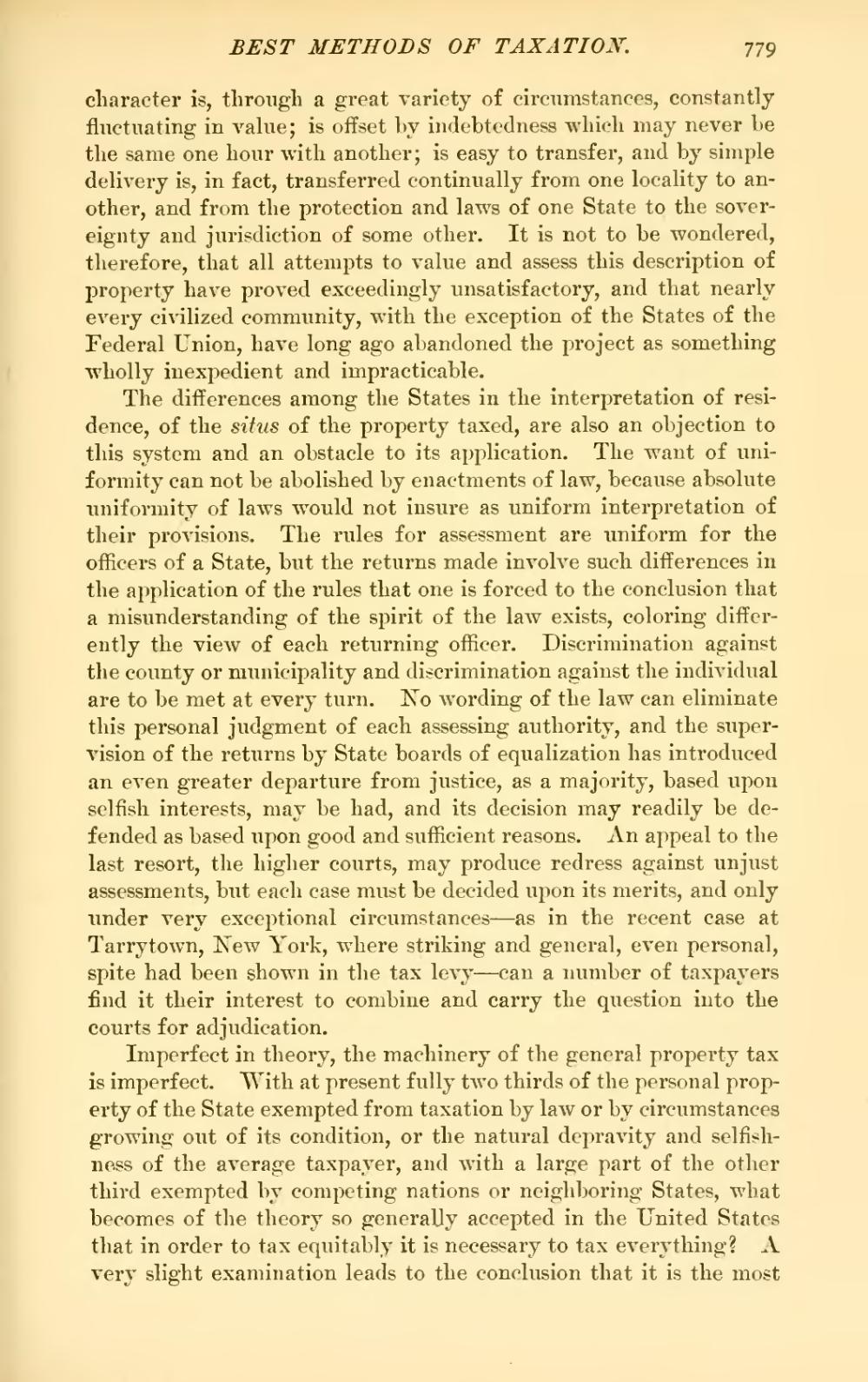character is, through a great variety of circumstances, constantly fluctuating in value; is offset by indebtedness which may never be the same one hour with another; is easy to transfer, and by simple delivery is, in fact, transferred continually from one locality to another, and from the protection and laws of one State to the sovereignty and jurisdiction of some other. It is not to be wondered, therefore, that all attempts to value and assess this description of property have proved exceedingly unsatisfactory, and that nearly every civilized community, with the exception of the States of the Federal Union, have long ago abandoned the project as something wholly inexpedient and impracticable.
The differences among the States in the interpretation of residence, of the situs of the property taxed, are also an objection to this system and an obstacle to its application. The want of uniformity can not be abolished by enactments of law, because absolute uniformity of laws would not insure as uniform interpretation of their provisions. The rules for assessment are uniform for the officers of a State, but the returns made involve such differences in the application of the rules that one is forced to the conclusion that a misunderstanding of the spirit of the law exists, coloring differently the view of each returning officer. Discrimination against the county or municipality and discrimination against the individual are to be met at every turn. No wording of the law can eliminate this personal judgment of each assessing authority, and the supervision of the returns by State boards of equalization has introduced an even greater departure from justice, as a majority, based upon selfish interests, may be had, and its decision may readily be defended as based upon good and sufficient reasons. An appeal to the last resort, the higher courts, may produce redress against unjust assessments, but each case must be decided upon its merits, and only under very exceptional circumstances—as in the recent case at Tarrytown, New York, where striking and general, even personal, spite had been shown in the tax levy—can a number of taxpayers find it their interest to combine and carry the question into the courts for adjudication.
Imperfect in theory, the machinery of the general property tax is imperfect. With at present fully two thirds of the personal property of the State exempted from taxation by law or by circumstances growing out of its condition, or the natural depravity and selfishness of the average taxpayer, and with a large part of the other third exempted by competing nations or neighboring States, what becomes of the theory so generally accepted in the United States that in order to tax equitably it is necessary to tax everything? A very slight examination leads to the conclusion that it is the most
